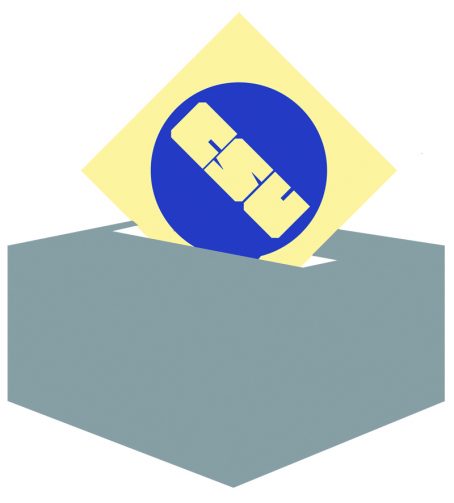Misrepresentation, inter-faculty tension and lack of transparency in next by-elections according to anonymous council members.
In an anonymous statement to The Concordian, a group of Concordia Student Union (CSU) councillors is accusing some executive CSU members of trying to increase the executive team’s power while fostering a culture of inter-faculty tension with the referendum question titled Council Change as its tool.
According to the statement, not enough students chose to run for the CSU. However, instead of focusing on mass outreach on campus to promote involvement, the CSU implied that conflict between faculties is the source of that issue.
The question, previously named Faculty Equality, suggests a restructuring of the council by reducing the number of councillors from 30 to 16. At the moment, 13 seats are allocated for Arts and Science students, seven for JMSB students, five Engineering and Computer Science students, three for Fine Arts students and two for independent students as voted by the CSU on Oct. 23.
The new structure would allow only three councillors for every faculty plus one for independent students. Arts and Sciences will be divided into two separate faculties.
“More councillors just means more chaos. And chaos is inefficient,” wrote CSU President Chris Kalafatidis in a message to The Concordian. “Chaos means not being able to hold the Executive accountable.”
But the anonymous statement claimed that having fewer councillors translates to fewer opportunities for students to get involved in university politics, a lack of efficiency within the CSU and a lack of accountability on the Executive.
“Currently, the CSU has approximately 15 committees which all hold about four to five seats each. A reduction to 20 councillors may lead to a lack in quality, efficiency and impactful work,” read the statement. “This is immensely detrimental for students as these committees provide funding and services to the undergraduate body.”
As for accountability of the Executive team, the statement refers to this situation as “unfair distribution of power,” and says it would not properly represent the student’s interests. Kalafatidis thinks otherwise.
“The current council requires JMSB, Gina Cody, Fine Arts and independent students to strictly rely on the Arts and Science coalition to get anything done,” Kalafatidis said. “The current council only represents Arts and Science.”
However, seats are allocated proportionally to the number of students in each faculty. Arts and Science has a bigger representation as they form almost 50 per cent of Concordia’s student body.
The statement also accused the CSU president of trying to “gerrymander Council and make it seem socially acceptable by adding the word ‘equality’” in the question. The referendum question was renamed Council Change by the CSU.
Second chance for two by-election candidates
After the last CSU’s general elections, Danielle Vandolder-Beaudin was disqualified for asking students to vote for her slate, Cut the Crap. As a punishment, she could not run again in any CSU elections for a period of one year. However, the Judicial Board reversed that decision according to Kalafatidis.
A few months later during the summer, Selena Mezher, elected CSU Sustainable Coordinator last general elections, left the country which resulted in many reactions. One of the anonymous councillors said that Mezher failed to advise the CSU that she would be leaving and ignored everyone’s attempts to contact her which resulted in a defunct resignation. However, Kalafatidis said that Mezher committed no offences or violations, and never took any pay from the CSU.
A few months later, the two are running as CSU councillors in the by-elections which began on Nov. 12.
The anonymous councillors are requesting that previously disqualified or fired members wishing to run for CSU positions must include a disclosure on their ballots about the date and nature of the offence for all CSU elections.
“We believe that all students should have the right to participate in student life, however, being transparent and assuming responsibility for their actions is a good start towards accountability, something we value as councillors,” read the statement.
A motion will be voted at the CSU council meeting on Nov. 13 to set rules on penalties for candidates that previously committed offences. If passed, candidates will be forced to disclose those offences on ballots.
Graphic by Alexa Hawksworth




